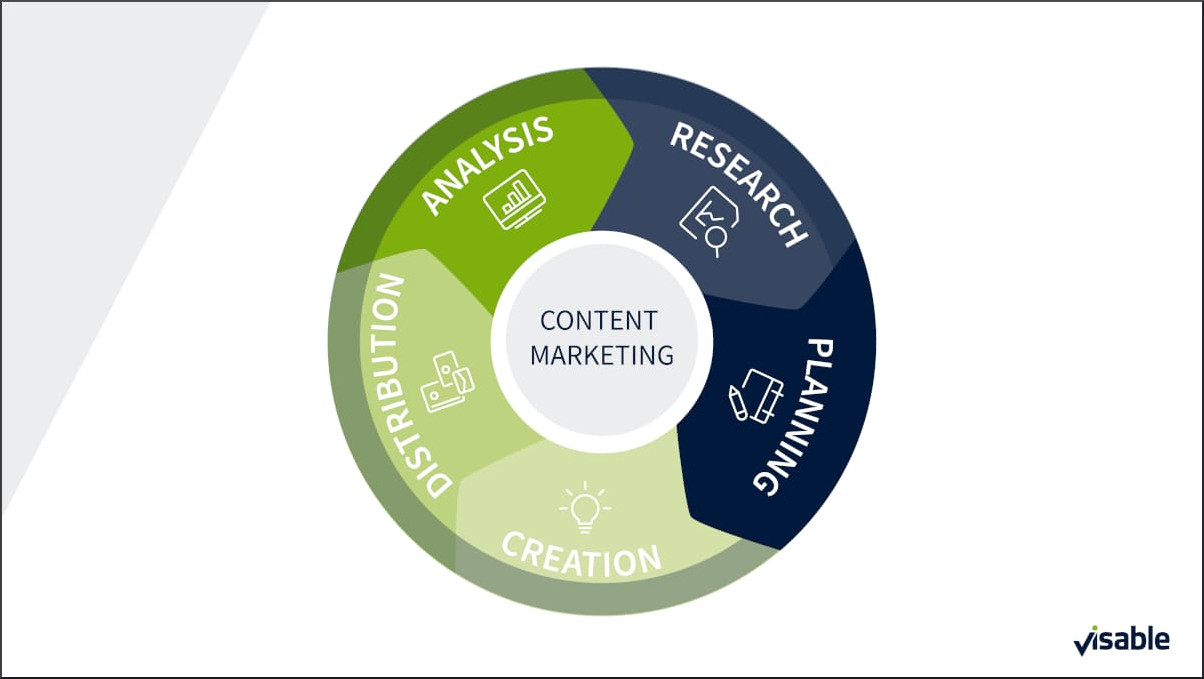Well-implemented content marketing also pays off in the B2B segment for achieving a range of company objectives. But when it comes to the preparation of content, more and more fundamental mistakes are being made. There are five errors you should be sure to avoid.

Content marketing for B2B: why it is so essential
Today, content marketing is anchored in many B2B companies as a strategic advertising measure. But not all companies are achieving their desired results with it. According to the B2B-Content-Marketing-Report 2020 from Content Marketing Institute, only 26 per cent of those companies questioned view their activities in this area as being successful or very successful.
But what this survey also shows: when content marketing is implemented correctly, it supports the company in achieving a host of objectives. B2B companies who view their content marketing as being successful enjoy the following benefits:
- Stronger customer loyalty (84 per cent)
- More subscribers and leads (83 per cent)
- Higher sales and profits (75 per cent)

Typical mistakes in content marketing
Too pushy, too many keywords, too many points not relevant to the target group: a host of mistakes are made time and time again in content marketing. Avoid the following five cardinal errors to ensure your content makes an impact:
1. Product advertising no one is interested in
Successful content marketing obviously has little to do with obvious product advertising. On the contrary, it offers customers attractive solution recommendations where the product or the service provided can play a role. The important thing is to make sure the content actually helps in real life and offers the customer true added value. If a text sounds more like advertising content as a whole than knowledge content, the reader quickly tunes out.
2. Keyword stuffing
Keyword stuffing is an optimisation method by which relevant keywords are integrated in a text in a high number and density to gain a better Google ranking. This strategy once worked for many years, but the Google algorithms today recognise keyword stuffing. Google even punishes websites in the rankings for doing this by completely ignoring the keywords and thus the entire website. What’s more, an overuse of keywords often compromises readability. Even the creation of text without true added value just to get as many keywords in as possible is not favoured by Google.
3. No consideration of the target group
Before any content marketing measure is implemented, you should be clear about who the content should reach. Not defining the target group or not knowing it at all is just as much a cardinal error as not addressing the target group. The more tailored the content, the more the user being targeted by the content piece feels spoken to. Especially in B2B, the development of buyer personas is helpful. These fictitious customer profiles provide a much more concrete image than a broad target group.
4. Disregard for continuity
While individual measures can be quite successful in other marketing disciplines, continuity is key in content marketing. If you send out individual newsletters or post a blog article every couple of months, you will not achieve a good return on investment. Companies should prepare a pool of content at the start of their content marketing measures, which they can then publish online at a single go. The ongoing and frequent publication of new content is essential. After all, Google rewards a lot of and relevant content creation with a higher visibility. This also goes for one’s own website as well as for the various platforms on the Internet linking to your website – such as blogs or social networks.
5. Specialist language as proof of competence
High-calibre professors enjoy using complicated specialist terminology in talk shows to underscore their apparent expertise. But the listener is often overwhelmed, as he does not understand what is being said or has difficulty organising it correctly in his mind. The same goes for content marketing: good content is content that includes specialist keywords which often explain difficult, complex topics in B2B in an understandable way. Technical jargon is not proof of competence; rather, it makes it more difficult to understand the topic.
